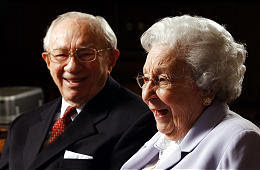Journal Entry – Week 12
“What’s A Business
For?”
§ Based on what you read in the first two pages (pages 3 and 4),
why are virtue and integrity so vital to an economy?
I thought a really great quote from this article
to answer this question is, “Market rely on rules and laws, but those rules and
laws in turn depend on truth and trust. Conceal truth or erode trust, and the
game becomes so unreliable that no one will want to play” (Handy, C. 2002.
Para. 2). When people become so greedy and self-centered that they are only
concerned about their own profit – no matter how it is obtained – others are
made to suffer. I think of the people who try to defraud insurance companies.
Insurance companies have to raise their rates to cover the cost of such fraud.
As my father often told his children, “One bad apple can spoil the whole
barrel.” Though fraud isn’t a business (at least not in any definition of the
term we have been studying), it does show what happens when people are
dishonest and full of greed. On the other hand, when people adopt the
principles and policies we have been learning in this course: rescuing others,
being a true leader and bringing as many others with you on your road to
success, etc., entire communities can rise together, and by extension, entire
nations.
§ According to Charles Handy, what is the “real justification” for
the existence of businesses?
Handy said, “The purpose of a business, in
other words, is not to make a profit, full stop. It is to make a profit so that
the business can do something more or better.”
In a capitalistic society, it is exciting to
think that a person can dream up a business and then make it happen. The sky is
pretty much the limit here. However, some people become drunk on that
opportunity and capitalism has gotten a bad name. If companies truly worked for
the welfare of all concerned, not just for their own bottom line, they could
achieve greatness unlike anything they could have imagined. That may not
include achieving more wealth than the next guy, but what they can achieve
would more than make up for any shortfall in profits. They would leave a legacy
for their employees, their families, their communities, and the business world
in general.
§ What are two solutions proposed by Handy that you agree with?
Why?
1) Corporate Democracy: If a company would share a fixed portion of
their after-tax profits with their employees, they become investors in their
place of business. Companies can include their employees in the decision-making
process, allowing them to take on partial responsibility for their future
earnings. This will engender greater loyalty within the company.
2) More Responsible Corporate Behavior: Drawing a comparison to the
medical Hippocratic oath promising to “do no harm,” Handy’s suggestion is that
corporations follow suit and become more concerned with the environment,
conditions of employment, community relations, and ethics, arguing that “business
needs a sustainable planet for its own survival” (Handy, C. 2002. p. 7). The
idea is that a company can lead out as an example of responsible business and
set the stage for others to follow. In doing this, they are not only helping
the community, they are giving their employees a sense of purpose and a reason
to work harder while they are on the clock.
I like both these
ideas. I have never been much of an activist and I feel that many of them are
extremists whose time would be used more wisely spent building and running
their own businesses the way they picket for others to run theirs. I support a
capitalistic society, but I agree that there needs to be change and reform.
Businesses do need to be more “other” focused and more responsible for what
they have created and what they do with it. And I love the idea of corporate
democracy. It this were a Zion society, this might be possible. When I open my
own business, this has always been how I envisioned managing it. I would
welcome the input and ideas of my employees, allowing them to understand how
the business works, but also shouldering some of the responsibility for it
success and failures. They would be fully invested in the business in every
sense of the word and the success of the business would be personal to them. I
would benefit from the wisdom, insights, and ideas of others I work with as
well. I think it is more of a win-win scenario.
“A Field Guide for the
Hero’s Journey”
My favorite quote from chapter 9 this week was,
“…like Tennyson’s Ulysses, you are the sort who says, ‘How dull it is to pause,
to make an end, to rust unburnished, not to shine in use” (Sandefer, J. & Sirico,
R. 2012, p. 124)!
This went right along with what I learned from
my entrepreneurial interview with Ken Brailsford when he said, “If you haven’t
failed, you probably haven’t done anything.” It is important to be engaged, to
work, to try, to fail, to LIVE!
Marjorie Pay Hinckley once said:
Marjorie Pay Hinckley once said:
“Life is not
a journey to the grave with the intention of arriving safely in a well-preserved
body, but rather to skid in broadside, thoroughly used up, totally worn out,
and loudly proclaiming, “Wow what a ride!’”
This also reminds me of the parable of the
talents. We could live our lives in fear of losing, hide our talents, and
arrive safely home having lost nothing. But the Lord does not want us to lose
nothing. He wants us to lose the natural man. He wants us to make every effort
to improve, take leaps of faith, and arrive having gained eternal life.
Boyscouts are told when they go camping to
leave the site better than when you found it. I think that is true for us on
our mortal journey – and that includes our business lives. We need to leave the
people, the environment, and the world a better place for having lived here.



Comments
Post a Comment